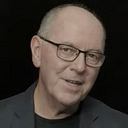“Creativity is intelligence having fun.” — Albert Einstein
As the CEO of an AI skills development company, I deeply appreciate the immense value that creativity, critical thinking, and cultural understanding contribute to ethical company growth. The world is an innovation-driven landscape. Employing individuals who can think outside the box, adapt to change, and communicate effectively with diverse stakeholders is imperative. That’s why I can’t emphasize enough the significance of arts and humanities in nurturing these attributes.
If you want to develop an unfair advantage, study the humanities.
Listen to the Deep-Dive Podcast.
The Passport to Ingenious Solutions
Imagine an organizational culture bereft of the charm of creative thinking—a mechanical milieu without the vivid palette of innovative ideas, evocative problem-solving strategies, or eloquent communication. In their myriad manifestations, the arts serve as a passport to ingenious solutions.
The human mind finds refuge and stimulation through the output of creators devising paintings, literature, and music.
These artistic mediums allow our teams to venture into new domains, convert abstract concepts into palpable strategies, and challenge the traditional confines of business practices. Through creativity, we foster a culture that speaks the language of innovation, ignites motivation, and builds bridges that transcend linguistic barriers.
“Critical thinking is a desire to seek, patience to doubt, fondness to meditate, slowness to assert, readiness to consider, carefulness to dispose and set in order; and hatred for every kind of imposture.” — Francis Bacon
While the arts kindle creativity, the humanities arm our workforce with the analytical tools necessary for ethical decision-making. For example, literature, philosophy, and history steer us on intellectual expeditions that broaden our perspectives. They unravel a panorama of narratives, encouraging us to appreciate diverse viewpoints, contest preconceived notions, and navigate the labyrinth of human behavior.
Engaging with the humanities fosters a team adept at empathetic discernment and skilled in making informed choices. They prompt us to challenge the status quo, unearth the underlying currents, and appreciate the grace of sophisticated reasoning.
The arts and humanities are robust channels for understanding and cultural preservation. They provide a glimpse into the rich diversity of traditions, ethics, morals, and viewpoints that weave the tapestry of our global village. We develop a more comprehensive appreciation for human experiences spanning continents and epochs through exposure to various art forms and historical narratives.
Fostering these insights cultivates empathy, dismantles walls of bias, and nurtures a sense of global stewardship. Artistic expression extols the distinctiveness of each culture, while the humanities facilitate dialogue, bridging chasms between communities.
The confluence of arts, humanities, and innovation lays the foundation for breakthroughs. Creative thinking, often fueled by art, is the lifeblood of innovation in science, technology, and diverse fields.
“Creativity is intelligence having fun.” — Albert Einstein.
Art challenges us to establish connections between seemingly disparate concepts, welcome uncertainty, and think beyond conventional norms. It is within this domain of boundless imagination that industry-disrupting solutions are conceived. Moreover, as the corporate world undergoes relentless transformation, the interdisciplinary character of arts and humanities equips people with the agility needed to traverse the intricacies of an ever-mutating environment.
We need to embrace the transformative prowess of art, literature, philosophy, and history, and immerse ourselves in the splendor of visual and performing arts, indulge in the rich fabric of literature, and partake in stimulating conversations that celebrate the humanities.
These creative and intellectual domains contain the three keys to unlocking the treasure chest of human ingenuity, acumen, and compassion.
Where creativity flourishes, critical thinking prospers, and the human spirit takes flight to unprecedented pinnacles.
- Cultivating Business Acumen through Critical Thinking: The article emphasizes the importance of the humanities in developing critical thinking skills, which are essential in business. By engaging with literature, history, and philosophy, employees can analyse and question information effectively, leading to better decision-making.
- Amplifying Global Sensibilities through Cultural Understanding: The arts and humanities serve as powerful mediums for cultural understanding. Cultivating an appreciation for diverse traditions and values is vital for a corporation with global aspirations. This understanding helps break down barriers and foster effective communication with stakeholders from different cultures.
- Spurring Corporate Ingenuity and Versatility through Creative Thinking: The intersection of arts and humanities fuels creativity, which is at the core of innovation. In a corporation, encouraging artistic expression and creative thinking can lead to groundbreaking solutions and adaptable strategies essential for success in an ever-evolving market.
I’m deeply committed to fostering a culture that values critical thinking, cultural understanding, and creative problem-solving.
Arts and humanities are indispensable in this pursuit because they enrich our experience of the world and unlock our full potential.
About the author: Greg Twemlow, Founder of XperientialAI©.
Greg Twemlow: “Empowering future leaders and organizations by designing and delivering AI-integrated experiential learning programs that blend technology, ethics, and philosophy. Through consultancy, mentorship, innovation coaching, and thought leadership, I help CEOs, business leaders, and individuals ethically and efficiently implement AI solutions while fostering a culture of trust, integrity, and wisdom in an AI-driven world.” Contact Greg: greg@xperiential.ai
